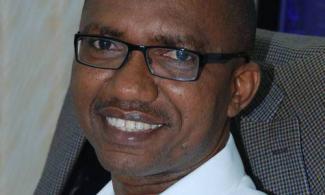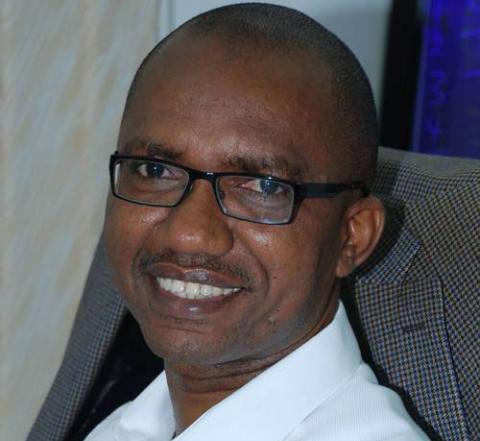
Even if you overlook the trauma of the survivors, which is quite a mountain to climb, the 82 persons who according to an Amnesty International report were killed extra-judicially by SARS in the last three years present unique stories of ruthlessly aborted dreams. While each affected family has borne its own grief in its own unique way, not a single perpetrator has been brought to book.
You’ll have to go back nearly a decade to find anything resembling what has been happening across the country in the last one week.
Back then, civil society deeply offended by trillions of naira stolen by government officials and campaign donors to the ruling party in the name of petrol subsidy mounted protests that rocked the country and nearly brought President Goodluck Jonathan’s government to its knees.
As it turned out, nearly didn’t kill that bird. It, however, triggered #BringBackOurGirls, which sent waves of protests, as far away as the US White House, against the cavalier way that Jonathan’s government handled the kidnap of over 200 school girls from their dormitory in daylight in Chibok.
Yet, even the protests at that time are only a shadow of what has been happening in the country since last week. #ENDSARS is what happens when deep-seated injustice and oppression meet single-minded courage and determination.
It’s hard to tell which of the stories that sparked the protests is more heart-breaking. The story of the woman whose brother was killed by the Special Anti-Robbery Squad (SARS) and whose grief was compounded by SARS men demanding sex before the young man’s corpse would be released? The corpse was released after a radio announcer intervened. But the victim’s mother died while waiting.
What about the case of young Aborisade who was forced to get off an inter-state bus because he was carrying an iPhone and after the SARS men didn’t find enough money in his account, framed him as a robbery suspect?
Or the case of Ifeoma Abugu, a young lady that had just completed her national youth service who was arrested in place of her fiancé, sexually molested in detention and left to die in the cell? Or Tiyamiu Kazeem who was stopped by SARS men and as they tried to take him into custody fell out of the SARS van and was run over by a moving car?

Have we forgotten the cases of dozens of young men humiliated, detained and brutalised for their dreadlocks, tattoos, long beards and avantgarde dressing? Or the filmmaker who escaped death by the skin of his teeth for carrying props meant for an action movie?
Even if you overlook the trauma of the survivors, which is quite a mountain to climb, the 82 persons who according to an Amnesty International report were killed extra-judicially by SARS in the last three years present unique stories of ruthlessly aborted dreams. While each affected family has borne its own grief in its own unique way, not a single perpetrator has been brought to book.
Ochuko, the young man whose shooting in Ughelli last week sparked the latest protests, barely escaped with his life. It doesn’t matter whether it was SARS or “Operation Delta Safe” that pulled the trigger: They’re cousins of the same deadly heritage.
And that’s precisely the point: how long that heritage would be endured, tolerated and even enabled.
As the protests spread, former Inspector General of Police Suleiman Abba, shed a few tears, not for the victims of the heinous crimes and brutality, but for SARS. He said we’re going to miss SARS so badly, that we would regret the day they were redistributed. By the time he was done messaging, I couldn’t help a sense of relief that he failed to get the All Progressives Congress (APC) nomination to run for Senate in Jigawa. That’s how he would have been talking in the Senate?
Abba doesn’t get it. He won’t. In his 30-year career in the police force apart from his tour of duty as aide-de-camp to General Sani Abacha’s wife, his withdrawal of the police orderly attached to former Speaker Aminu Tambuwal, and the day Dr. Reuben Abati announced his appointment as IGP in a short press statement, you’ll have to scratch your head to remember that he rose that high in the force. He apparently just loved to leave rotting dead bodies in the force exactly where they were buried, with a big face mask over his nose.
Abba is not the only one who thinks that we might yet send roses to SARS for dismantling them. I’ve heard some say that while SARS operating in most parts of the North are good guys, the ones in Lagos and a number of the states in the South (and especially the Southerners among them), are the bad guys. Why dismantle the good guys with the bad?
Why? When there’s an epidemic of rape, the way to save potential victims is not to try to find which likely perpetrators are wearing tribal marks or to use a measuring tape down below.
There’s no question that there are good policemen and I have met a few of them in my lifetime. The question is whether the culture of brutality in the force - and indeed in the security services - is not too deeply entrenched to make any cosmetic changes useless and endanger even the few good ones.
Even in the midst of the protests, policemen were still slashing the car tyres of social crusader Aisha Yesufu and those of other protesters; they were teargassing them and hosing them with water cannons when the Fire Service couldn’t find enough water to quench the fire set to the office of the Accountant General of the Federation, just next door.
Is that the force you redeem with a sermon or save by preaching like IGP Mohammed Abubakar Adamu did that they shouldn’t be inspecting people’s phones for the heck of it?
What the protesters are asking for - and what the country now deserves - is root-and-branch change; not tokenism by vested interests behaving as if they have been asked to donate their virility.
The good thing is that no matter the distractions and efforts to obfuscate things, the protesters are largely clear about what they want. And they know that the arm-twisting to make them relent is worse than giving SARS another welcoming party.
The protesters don’t want government money because they’ve seen protest leaders paid off and nothing changed. They don’t want a “seat at the table”, because they have seen White Papers on police reform turn brown and things only got worse.
And yes, they’re not burning tyres or looting shops because they have also seen genuine protests hijacked in the past and watched reactionaries use such incidents to compromise or blackmail demands for action.
They have learnt from the mistakes of their long-suffering parents and at least learnt a lesson or two from their striking teachers who were either lied to or who lied to themselves that change is best served piecemeal. They are charting their own course by having their skin in the game. They are levying themselves to pay for food, drinks and music as they keep the protests going.
While Tunde Lemo, Chairman of the start-up fintech, Flutterwave, was apparently away to ease himself, for example, the staff in his company donated the first N2million to fund the protests and gave details on social media to the last kobo how other donations came in and were being spent. Bundle Africa, another fintech, did the same thing. Anyone with a morsel’s worth of brain would know that all the talk about some people hijacking these companies to transfer illicit funds is nonsense.
Some of the best and smartest young people I’ve ever known - including a number of them with good-paying jobs and well-off parents - were out there on the streets, leveraging technology, social connections and their place as citizens of the world - to press for fundamental change. No PDP, no APC.
We may dislike the inconvenience caused by the road blockades. Or be embarrassed like Governor Abdullahi Ganduje whose appointee posted a snide remark against President Muhammadu Buhari. I honestly didn’t know that Ganduje still had the capacity to be embarrassed after all the dollar stories.
But after years of watching us play the ostrich, our children appear to be telling us the game is up. They’re not mad. And in this particular case, SARS is not even a predator police. A predator hardly wastes its prey. SARS is worse than predatory police: it has been infiltrated by a criminal gang that has bought the right of access and transformed the force in its own brutal image.
Georgia faced a similar problem. In an article in the June 11, 2020 edition of Foreign Policy, former Georgian President, Mikheil Saakashvilli, said when he took over as president in 2004, “Law enforcement agencies functioned like criminal gangs. Officers demanded bribes, trafficked in narcotics and weapons and worked for political and business elites as mercenary security force.”
Saving the fruit basket by removing the bad apples was not an option. He scrapped the system completely in addition to changing “the mentality of a broken, cynical, and fearful society.”
The process of creative destruction, according to him, involved dismantling the legacy of politicised policing, disbanding the traffic police, and replacing them with an entirely new force with no background in law enforcement and therefore no ties to the old corrupt network. It’s the culture, stupid!
New recruits were subjected to competitive exams and courses in the criminal procedure code, while they were taught new skills in persuasion, negotiation and mediation. The system had to be rebuilt from ground up.
Their stations were pulled down and every single one rebuilt with transparent glass frames. There was no longer any hiding place. The net result was a 66 percent decline in violent crimes and over 50 percent drop in the overall crime rate. At the end of Saakashvilli’s presidency in 2013, law enforcement ranked among Georgia’s most respected institutions with 87 percent approval rating.
It’s fair to argue that Georgia’s population is just about the size of a local government in Lagos and that what works there may not work here. That’s OK, but why not take the principle and start by truly decentralising the police and making them accountable? Redistributing SARS officers amongst the regular police force and throwing more money at the problem won’t solve it.
And the lesson about change by band aid is that it only makes the wound fester. Those resisting fundamental root-and-branch change in the police are not doing so out of benevolence. They want just about enough change that maintains their current privileges and nothing more. And they would do anything, including blackmailing protesters and spreading lies and hysteria, to get what they want.
Only creative destruction can produce something lasting. It remains to be seen if this moment will bring it about.
Ishiekwene is MD/Editor-In-Chief of The Interview